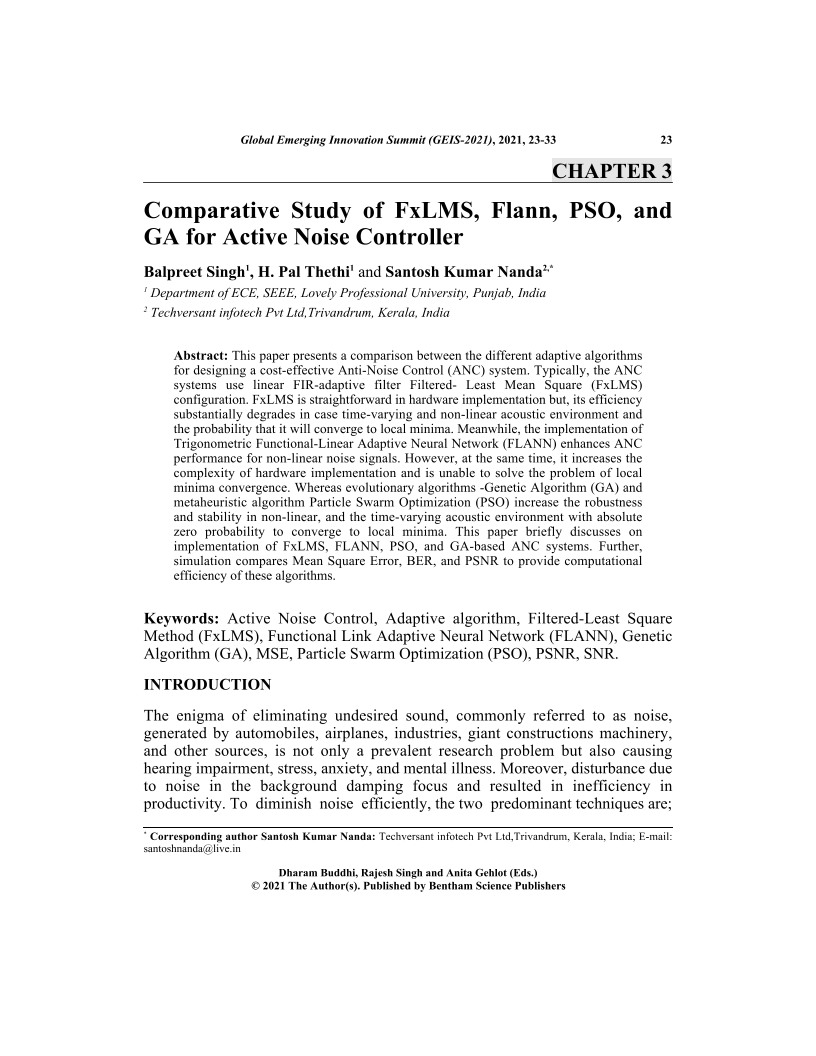oa Comparative Study of FxLMS, Flann, PSO, and GA for Active Noise Controller

- Authors: Balpreet Singh1, H. Pal Thethi2, Santosh Kumar Nanda3
-
View Affiliations Hide Affiliations1 Department of ECE, SEEE, Lovely Professional University, Punjab, India 2 Department of ECE, SEEE, Lovely Professional University, Punjab, India 3 Techversant infotech Pvt Ltd, Trivandrum, Kerala, India
- Source: Global Emerging Innovation Summit (GEIS-2021) , pp 23-33
- Publication Date: November 2021
- Language: English
Comparative Study of FxLMS, Flann, PSO, and GA for Active Noise Controller, Page 1 of 1
< Previous page | Next page > /docserver/preview/fulltext/9781681089010/chapter-3-1.gif
This paper presents a comparison between the different adaptive algorithms for designing a cost-effective Anti-Noise Control (ANC) system. Typically, the ANC systems use linear FIR-adaptive filter Filtered- Least Mean Square (FxLMS) configuration. FxLMS is straightforward in hardware implementation but, its efficiency substantially degrades in case time-varying and non-linear acoustic environment and the probability that it will converge to local minima. Meanwhile, the implementation of Trigonometric Functional-Linear Adaptive Neural Network (FLANN) enhances ANC performance for non-linear noise signals. However, at the same time, it increases the complexity of hardware implementation and is unable to solve the problem of local minima convergence. Whereas evolutionary algorithms -Genetic Algorithm (GA) and metaheuristic algorithm Particle Swarm Optimization (PSO) increase the robustness and stability in non-linear, and the time-varying acoustic environment with absolute zero probability to converge to local minima. This paper briefly discusses on implementation of FxLMS, FLANN, PSO, and GA-based ANC systems. Further, simulation compares Mean Square Error, BER, and PSNR to provide computational efficiency of these algorithms.
-
From This Site
/content/books/9781681089010.chapter-3dcterms_subject,pub_keyword-contentType:Journal -contentType:Figure -contentType:Table -contentType:SupplementaryData105

